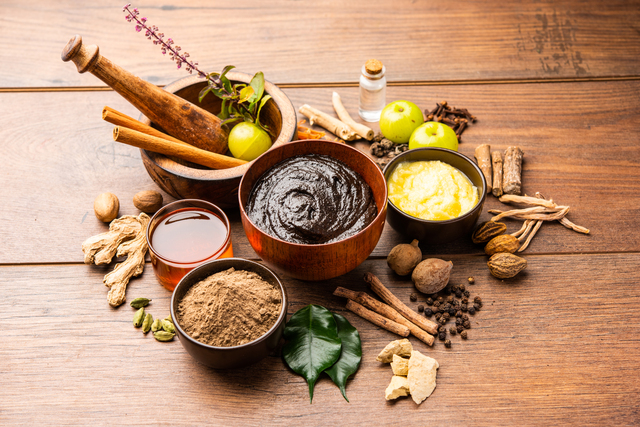In Ayurveda, Niruham (herbal decoction enema) is a strong, effective detox therapy that helps flush toxins and restore balance. To make the treatment work efficiently, dietary disciplines before and after the procedure are essential.
A well-prepared digestive system supports detox while post-therapy care ensures smooth recovery and better results.
Preparatory Diet
Before undergoing Niruham, the goal is to keep digestion light and efficient:
- Focus on light, warm, and freshly cooked meals, like rice gruel, mung dal khichdi, boiled vegetables, and green gram soup.
- Avoid heavy, oily, fried, spicy, or processed foods, as well as dairy, caffeine, alcohol, and cold or refrigerated meals.
- Use digestive spices like ginger, cumin, fennel, turmeric, and coriander to strengthen agni (digestive fire).
- Stay hydrated with warm water and avoid mixing raw and cooked foods in the same meal.
Post-Niruham Diet
After treatment, the digestive system needs gentle nourishment:
- Start with thin rice gruel (peya), gradually progressing to thicker rice preparations and light lentil soups.
- Avoid heavy meats, dairy combinations, and cold foods or drinks for several days.
- Sip herbal teas with ginger, fennel, or coriander to aid digestion.
- Slowly reintroduce wholesome cooked vegetables, rice, ghee, and mild spices while maintaining small, regular meals.
These simple dietary steps not only enhance the cleansing benefits of Niruham but also protect digestive strength, prevent imbalances, and promote long-term wellness.
Follow these mindful diet practices to support your Ayurvedic detox journey and restore balance naturally.
Feature Image Credit: Vecteezy.com. (free for commercial use)
